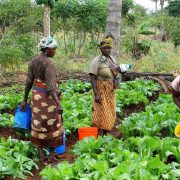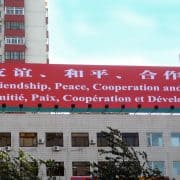|
Getting your Trinity Audio player ready...
|
Land is critical for women in sub-Saharan Africa, particularly in rural communities where they contribute substantially to food production and often depend on cash crops for income.
But when customary law fails to recognise women as legitimate land owners, men are able to manipulate women’s land rights for their own gain, resulting in corrupt activities like land grabs. Women are also often left out of decision-making when it comes to land use and management. This can push them deeper into poverty and further marginalise their status in society, threatening food security for all.
By giving women a voice in how land is governed and designing solutions to combat land corruption that are gender-sensitive, women will be more empowered to claim and defend their rights.
With this in mind, Transparency International*, together with several of its chapters in sub-Saharan Africa, have developed a guide explaining how land corruption affects men and women differently. For example, corruption involving land tends to impact men’s social status and lead to increased levels of poverty, whereas women are affected by these as well as sexual exploitation and discriminatory social norms. The guide also offers practical advice on how to design anti-corruption programmes that take the needs of both women and men into account.
The guide is intended for everyone working in and with the Transparency International movement, as well as other researchers and activists who wish to ensure their work on land corruption responds to the needs and interests of both men and women.
* Corruption Watch is the official Transparency International chapter in South Africa.
• Image: Transparency International / InsightShare








